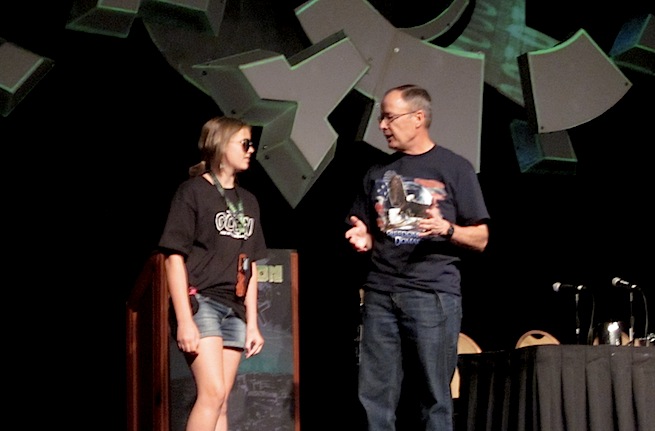 NSA director Keith Alexander told hackers last year at Def Con in Las Vegas that the National Security Agency, which is supposed to focus on foreign intelligence, does not track every American.
NSA director Keith Alexander told hackers last year at Def Con in Las Vegas that the National Security Agency, which is supposed to focus on foreign intelligence, does not track every American.
Strictly speaking, that’s accurate.
Every American who does not use a product or service from Microsoft, Yahoo, Google, Facebook, PalTalk, AOL, Skype, YouTube, or Apple might just possibly be safe.
Which means that, in other words, Alexander’s statement looks like a lie.
As we know now, the NSA and FBI allegedly collect, aggregate, and analyze audio, video, photographs, e-mail, documents and connection logs for people using Microsoft, Apple, Facebook, Google, and the other company’s products as part of a surveillance program named PRISM as well as metadata like device and location information via a sister service, BLARNEY. And that pretty much means just about everyone who is actually on anything resembling a grid in America — which is a vast majority of the country, and, for all intents and purposes, all Americans.
This doesn’t even include how many foreigners the NSA’s and FBI’s alleged massive dragnet includes. Given the size of the companies involved, you’d have to think the numbers could run into the billions.
If this report is accurate, this is an international public relations disaster for Facebook, Google, Microsoft, and Apple, who now have to explain to foreign government and citizens how their “private” data with the company has been massively siphoned out of databases and liberally bestowed on one of the most secretive intelligence organizations in America. And they may now possibly respond to foreign governments requests to gain similar access to their data.
But it’s a massive crisis at home as well with constitutional implications on privacy, security, and freedom from surveillance. And it calls into question the NSA’s and FBI’s alleged roles, their capabilities, their mandates, and the legality of this alleged massive data collection project.
When NSA chief Alexander made his I-am-not-a-crook statement, former NSA official Bill Binney said he was playing fast and loose with the truth.
“That’s the kind of word game they play,” Binney said also at Def Con. “There’s absolutely no excuse for him even implying that he’s not collecting all this data.”
And Binney, who helped build the spy-on-Americans capability before quitting, apologized for his role:
“The reason I left the NSA is because they started spying on everybody in the country,” said Binney. “Unfortunately, they took those programs that I built and turned them on you, and I’m sorry for that. I didn’t intend that. But they did that.”
At the time, Alexander seemed to indicate that there might be as many as 260 million Americans in the NSA’s and FBI’s digital files. And that there was no way anyone could analyze that much information:
“Think of that 260 million dossiers, or however many you’d come out [with],” he said. “Let’s see, if you’re trying to maintain those dossiers, I’m not a real good mathematician, but let’s say we have 20,000 people working that. How many files would each of us have to work? I’m not that kind of guy who’s going to work all those files.”
There’s likely some truth there: The mass of data would be overwhelming.
Fortunately for the NSA and FBI, however, automated “big data” analysis is a growing and fruitful field, and the organization is building a 600,000 square foot, $860 million data center in Fort Meade, Md.
After all, what else is technology for? Besides, of course, playing word games.
Related: NSA director Gen. Clapper denied that the agency collects data on Americans, in a hearing last year. See the video below, at the 6:40 mark (hat tip to Nick Bilton for the video link).
Image credit: Meghan Kelly/VentureBeat
VentureBeat's mission is to be a digital town square for technical decision-makers to gain knowledge about transformative enterprise technology and transact. Learn More

